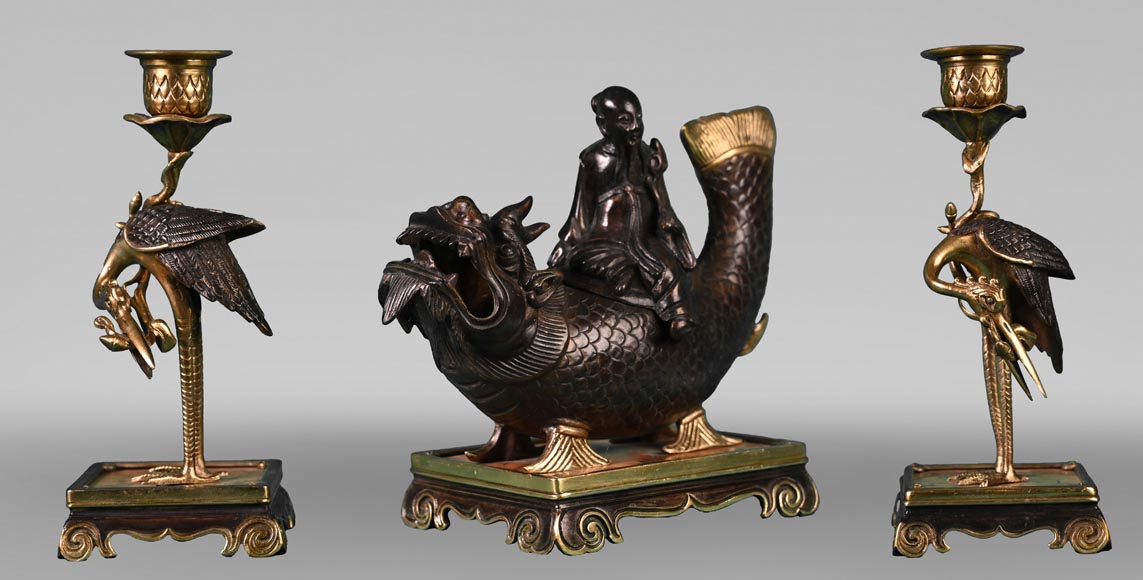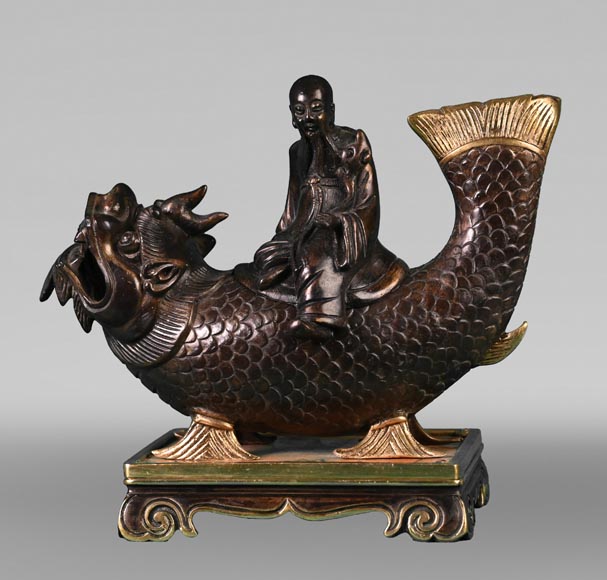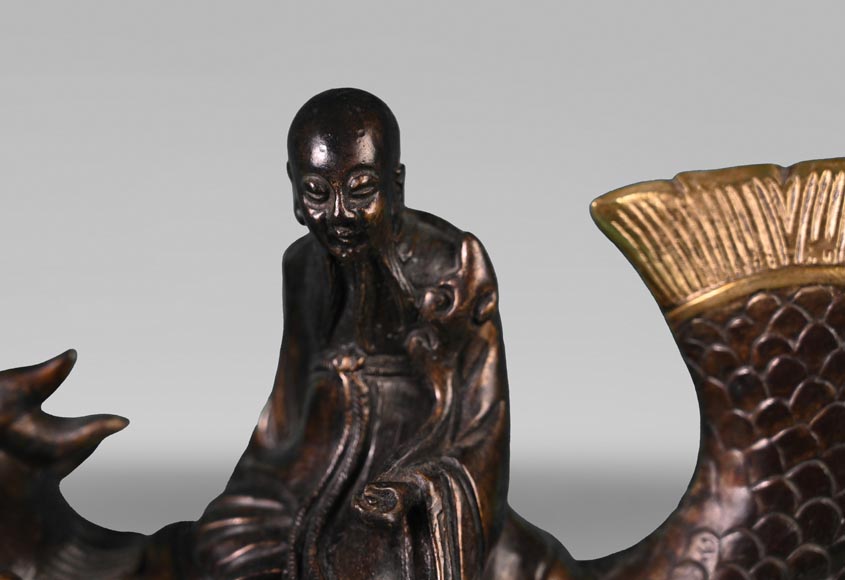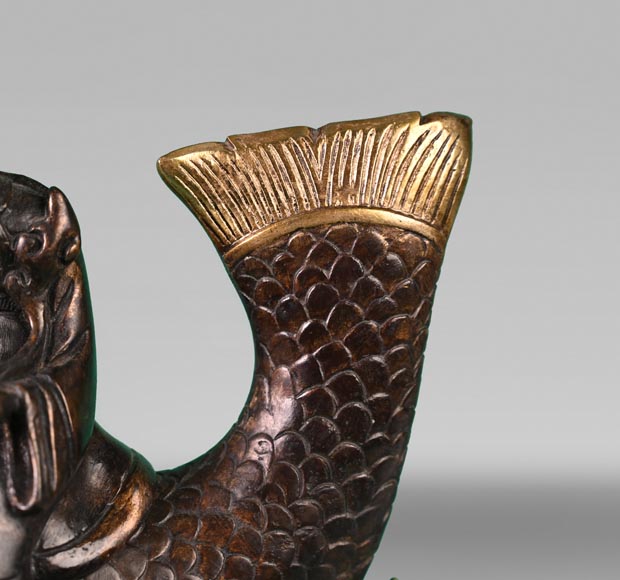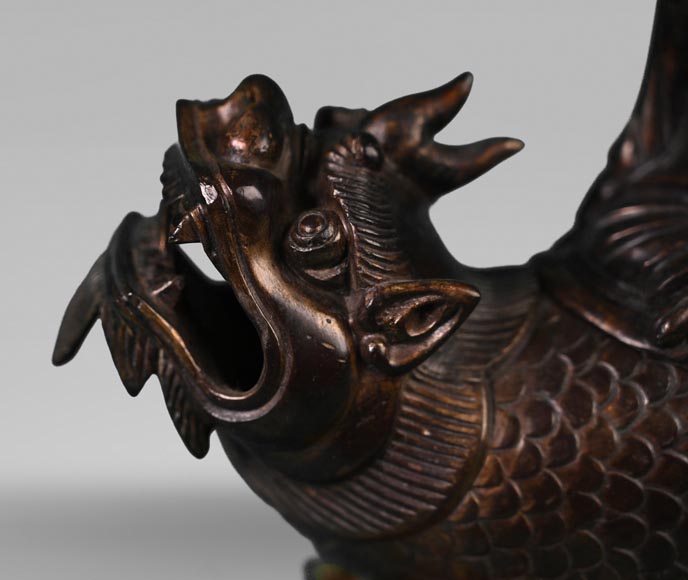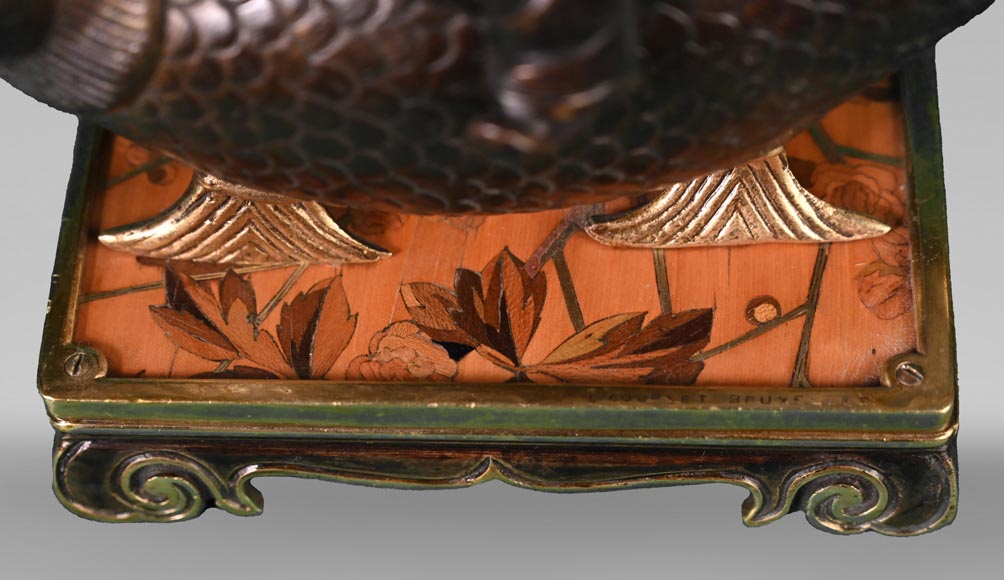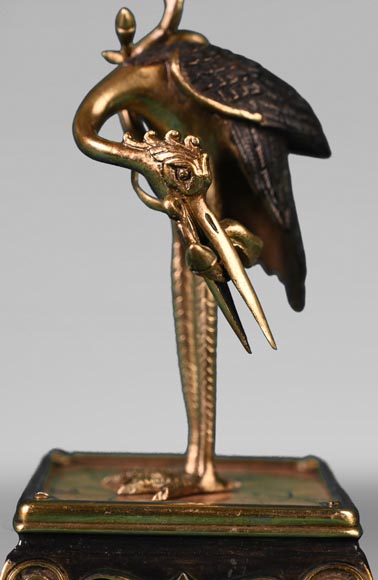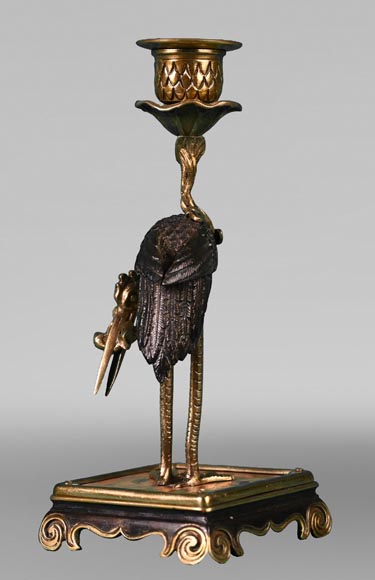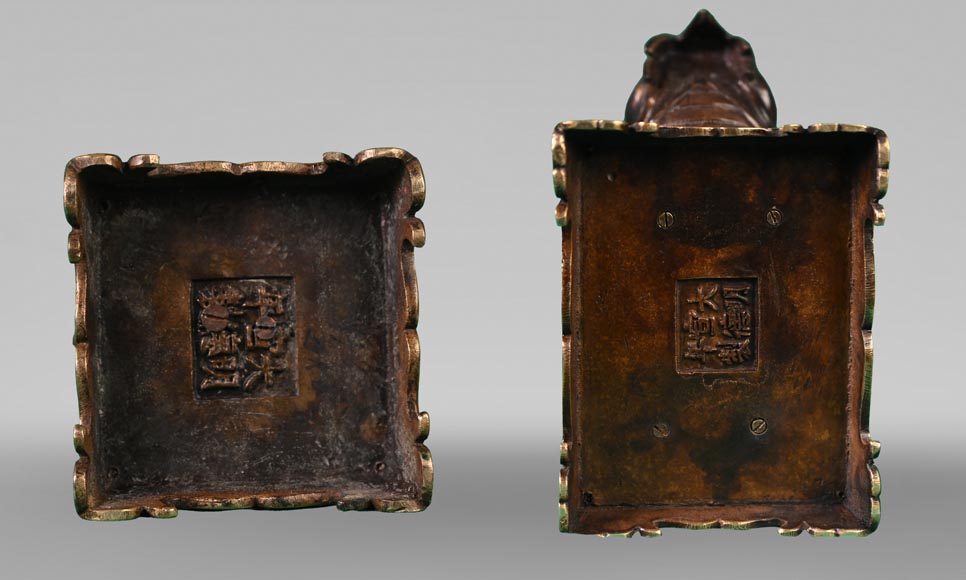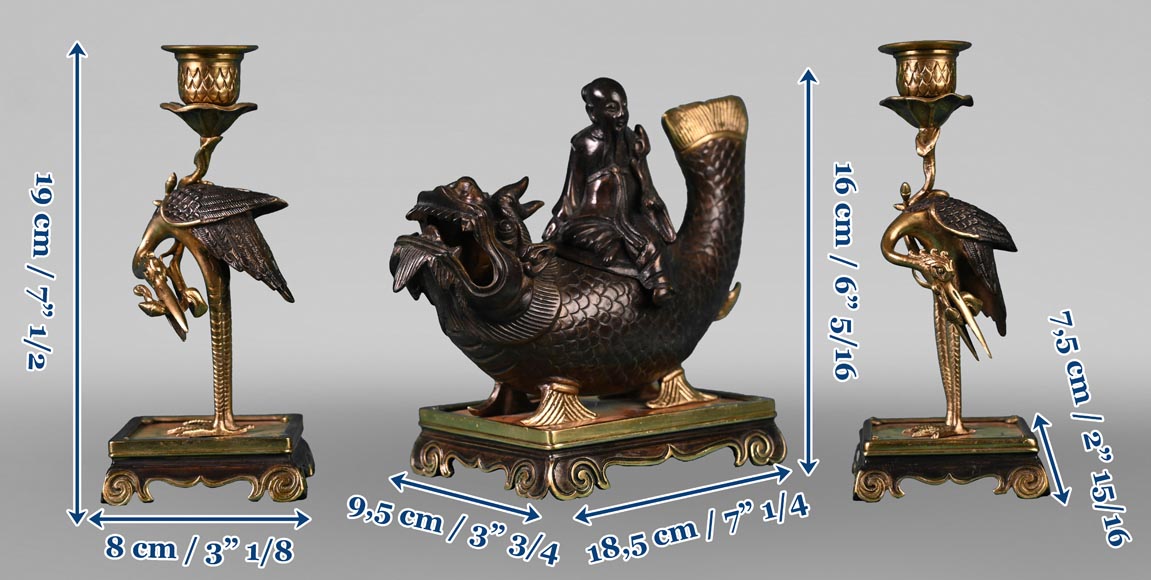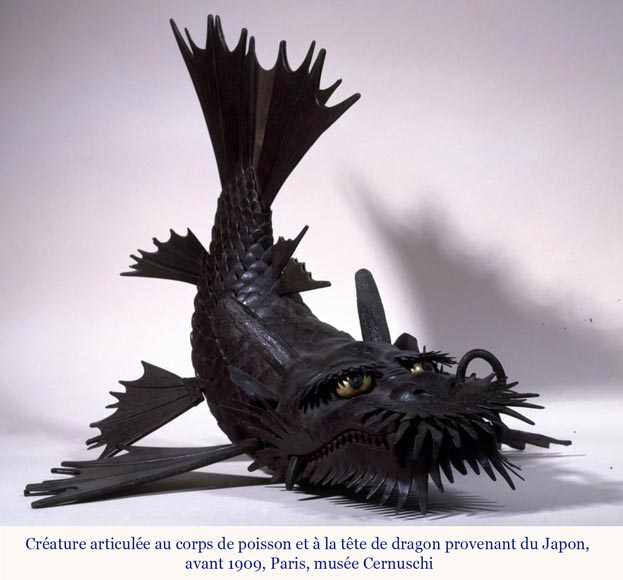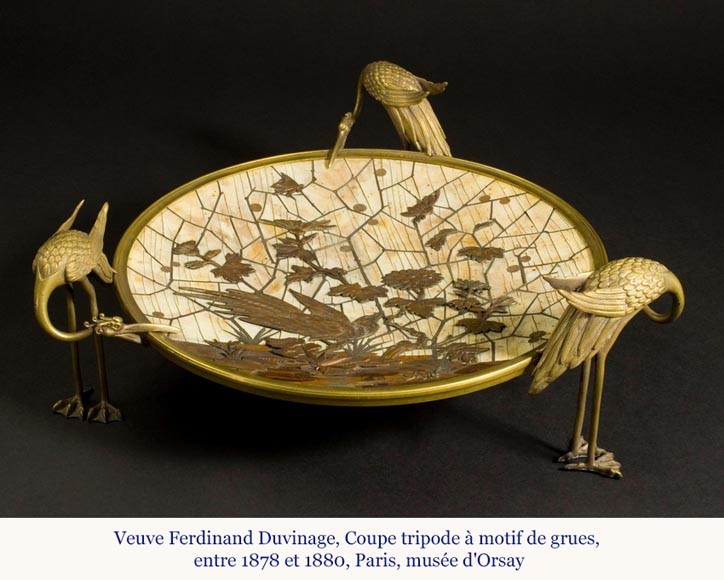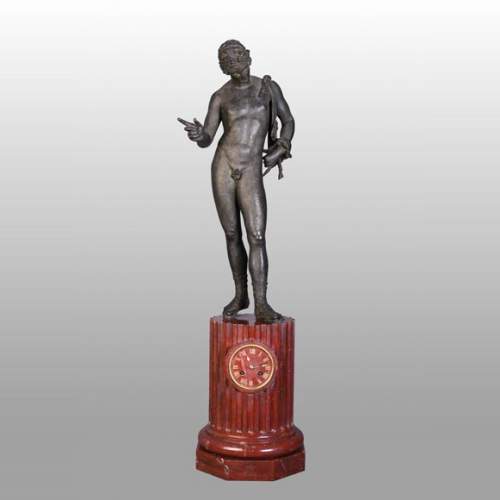Style Japonism, Chinoiserie / Ref.15268
Ferdinand DUVINAGE (attributed to), Japanese-Style Set Consisting of an Inkwell and a Pair of Candlesticks, circa 1867-1874
Dimensions
Width 7'' ½ 19cm
Height 6'' ¼ 16cm
Depth: 4'' 10cm
Origin:
France, 19th century
Status:
Good condition
This Japanese-style set, composed of an inkwell and two candlesticks, was crafted by Ferdinand Duvinage around 1867-1874.
Founded in the late 1790s by Alphonse Giroux (1775/76-1848), the company specialized in small cabinet-making and marquetry items, also selling curiosities, paintings, and engravings. Under the direction of one of his sons, Alphonse-Gustave (1809-1886), it began creating small furniture pieces. Thanks to Pierre-Ferdinand Duvinage (1813-1876), who took over in 1867, the company gained new momentum, receiving a silver medal and two merit medals at the Universal Exhibitions of 1867 and 1873. In 1874, Duvinage patented a “type of marquetry with metal partitioning for furniture and art objects”. After his death, his widow took over the business, continuing production until 1882; it was then passed on to A. Philippe and E. Arnut before ceasing all activity in 1885.
This set reflects the influence that Far Eastern arts had on the company’s production starting in the 1870s. At the center, the inkwell takes the shape of a shachihoko mounted by a Buddhist monk. This creature has the head of a dragon and the body of a carp, a folkloric figure from Japan. The Cernuschi Museum in Paris houses an articulated shachihoko similar to the one that must have inspired Duvinage. On either side, the two candlesticks are mounted on cranes, a recurring motif in Japanese prints. At their base, there is a “metal partitioned mosaic” executed using a technique invented by Duvinage, which he patented in 1874. The entire set is Japonist down to the smallest details: the inscription in Japanese characters under the base of the objects is the same as found on East Asian objects from the Ming era.
One of the candlesticks bears the mark of a Brussels retailer, for whom Duvinage likely made these items.
The cranes on the candlesticks echo those that support the tripod bowl created by the artist’s widow, now housed at the Musée d’Orsay in Paris.
Informations
Price: on request
Recommended for you :
Dimensions:
Width: 28
Height: 90
Diameter: 21
Dimensions:
Width: 51
Height: 42
Depth: 20
Dimensions:
Width: 27
Height: 67
Depth: 23
Dimensions:
Width: 31
Height: 45
Depth: 21
Dimensions:
Width: 43
Height: 62
Depth: 23
Dimensions:
Width: 31
Height: 56
Depth: 26
Dimensions:
Width: 67
Height: 78
Depth: 29
Dimensions:
Width: 28
Height: 57
Depth: 13
Dimensions:
Width: 22
Height: 53
Depth: 19
Dimensions:
Width: 25
Height: 50
Depth: 18
Dimensions:
Width: 133
Height: 119
Depth: 25
Dimensions:
Width: 32
Height: 46
Depth: 17



